Posted by: Ken @ 2:13 pm
As a kid in New Jersey, late August meant arrival of my birthday, but also that my freedom to spend whole days walking in the woods would soon be restricted. This time of year also carried with it the anticipation of transitory flocks of migrants, many of them “confusing fall warblers,” as my Peterson bird guide called them. Upland birding can be very hit-and-miss in late summer, with many summer residents finishing up the molt or already headed south. Now, birding in northern Illinois brought back some of those memories.
This week, Mary Lou and I walked to Jones Meadow Park near our North Aurora, Illinois condo, hoping to find more vireos and maybe some early migrant warblers, but none were around. The next day we drove across the Fox River to Lippold Park, hoping for better luck. It turned out to be another good morning for deer. In three years of visiting this park, we had never seen a single deer, but this time a group of four walked right towards us, apparently unconcerned about our presence.
Two spotted fawns and a reddish yearling doe are accompanied by a larger grayish doe, presumably their mother: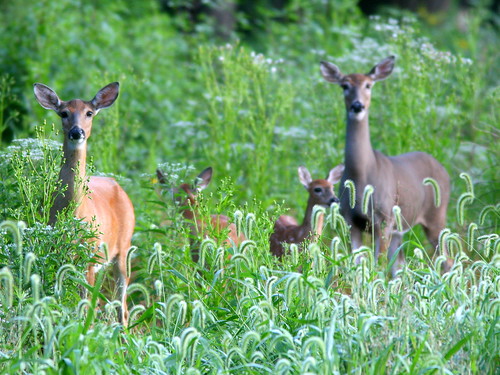
The blue of a male Indigo Bunting contrasts nicely with the yellow wildflowers: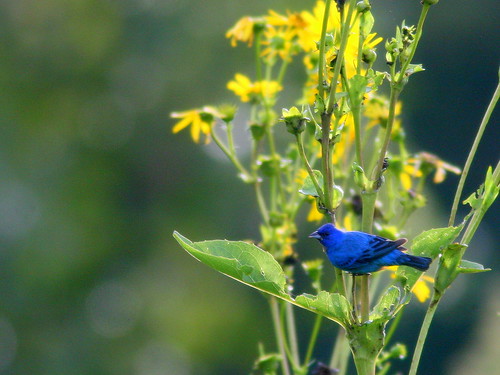
The beauty of a female Indigo Bunting is more subdued. This appears to be an adult female, but the immature bird of either sex may show a few blue feathers and look very similar. An adult female usually shows some streaking on the breast, not evident here.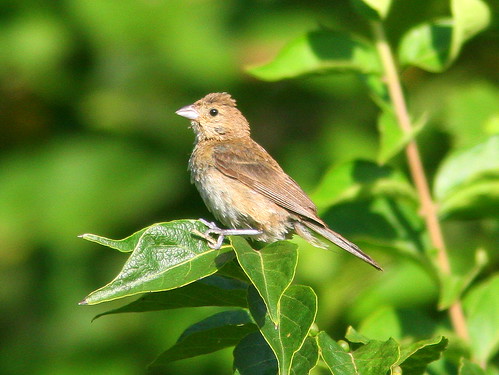
A male American Goldfinch chooses matching colors for his perch:
The next morning, back on this side of the river at Les Arends Forest Preserve, I forgot to check my camera settings. I like to shoot in aperture priority with an f-stop as open as possible. Somehow my aperture setting changed to a smaller size and the exposure time was so long that the image stabilization feature could not prevent blurring of the images. I had several knockout shots of this Black-and-white Warbler that turned out to be just fuzzy streaks.
I don’t know why the bird in this photo was even recognizable, but since this was the first time I have photographed a Black-and-white Warbler, I am saving it for documentation: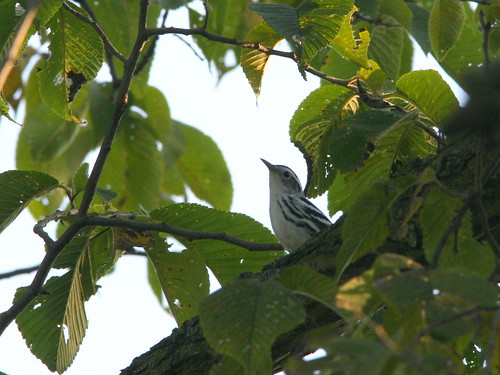
Nelson Lake/Dick Young Kane County Forest Preserve yielded a nice flock of early warblers, including three or four Magnolia Warblers:
American Redstarts were also present, but not easy to catch in the lens. This appears to be a first year male, judging by the bright orange on its sides:
I caught a quick glimpse of a Tennessee Warbler: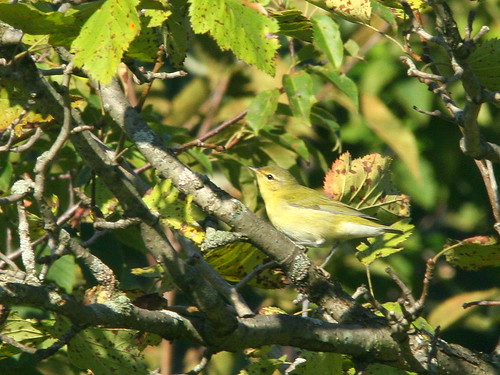
A flock of over a dozen Black-throated Green Warblers provided an unusual spectacle:
I photographed at least four different individuals as they moved in a group from one tree to another: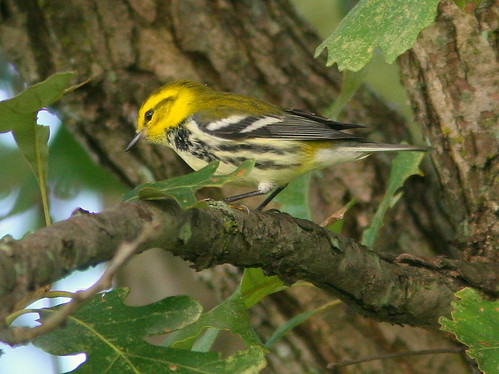
Several Ruby-throated Hummingbirds were active along the east side of the lake:
Two hummingbirds were constantly chasing a Least Flycatcher that posed nicely for me:
Suddenly, the birding died down, thanks to the arrival of this Cooper’s Hawk:
What does a birder do when there are no birds? Watch butterflies, of course, including this beautiful Common Buckeye:
The Southern Dogface is so named because the light area on this butterfly’s wing has the appearance of a dog’s face with a black eye, facing to the rear. The pink border is usually seen late in the season:
The Eastern Tailed Blue is a very pretty little butterfly:
These little Chickweed Geometer Moths are quite numerous on the path early in the morning. They usually try to perch on the opposite side of the grass blades, making it hard to get a photo of their top sides. They get their names because their larvae are “inchworms” that “measure” distance as they move along.
The week was punctuated by my LXXV birthday. The granddaughters decorated a cake and also got their two Tibetan Mastiffs into a festive mood:
“Two Old Dogs:”







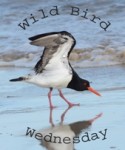





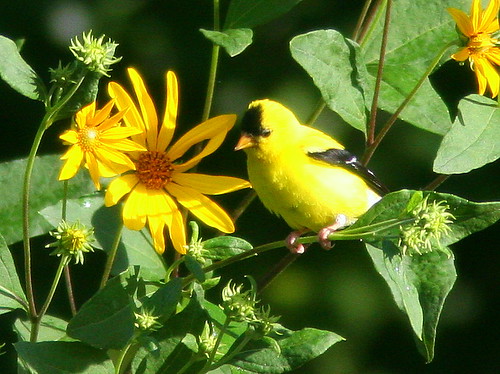
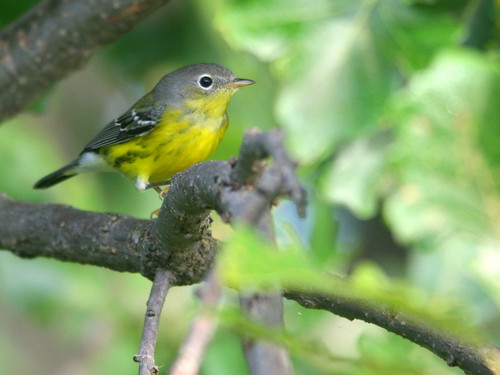
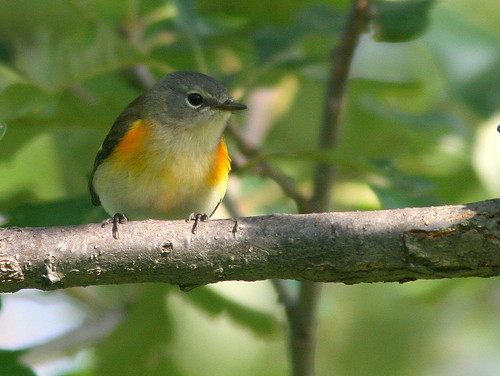
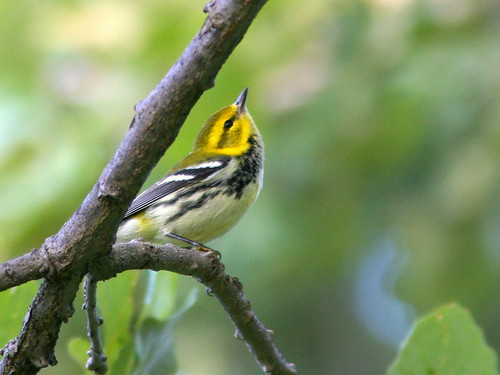

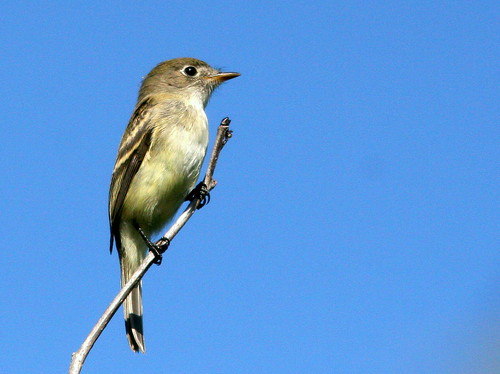
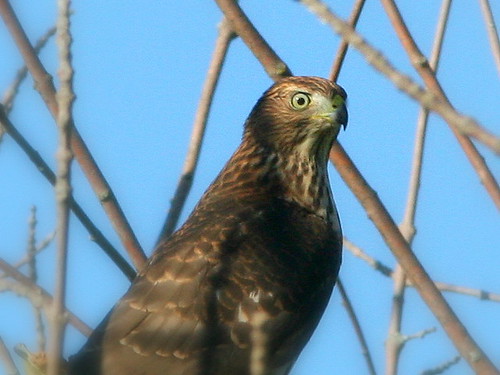
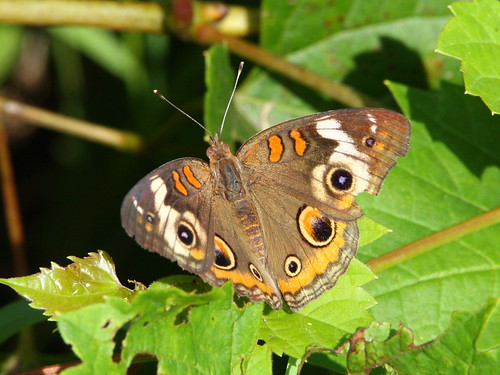
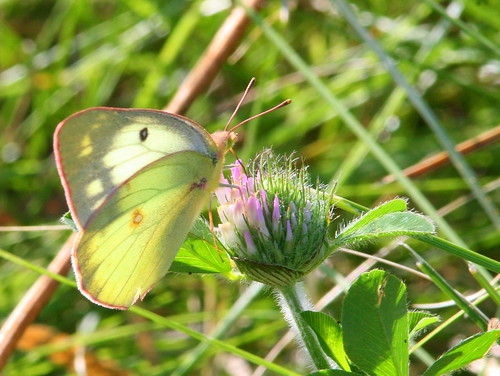
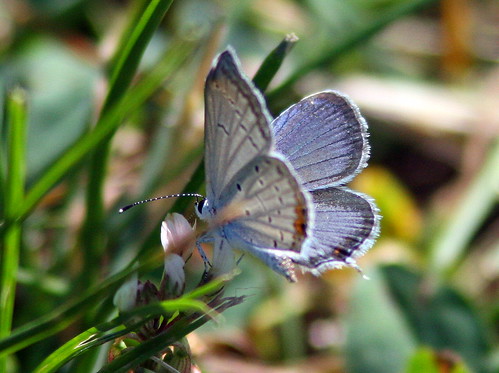
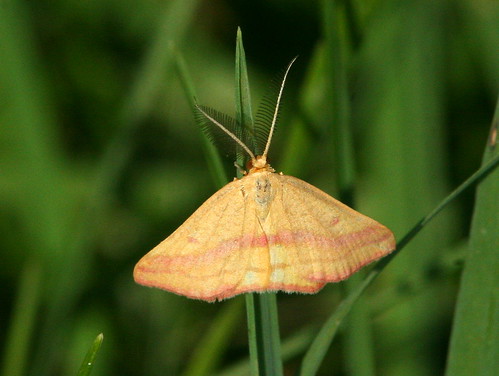
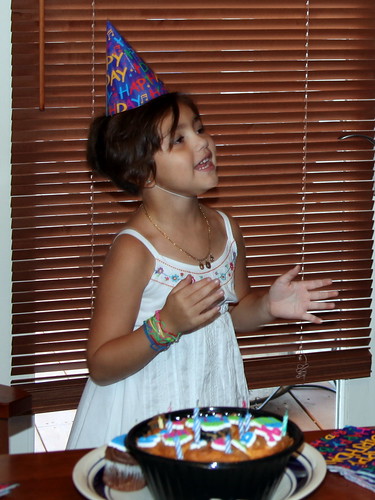
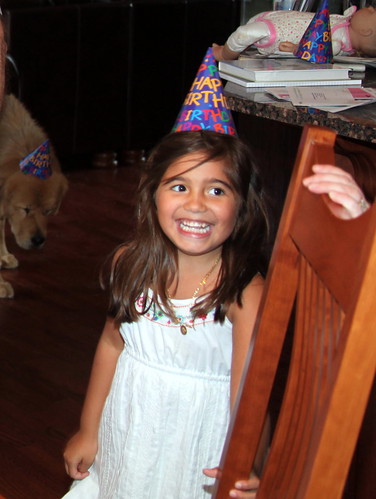

September 6th, 2010 at 11:04 am You’ve filled me with Warbler and Bunting envy. Great photos of spectacular birds!
September 6th, 2010 at 11:47 am Happy Birthday, Ken. Rich & Marion Miller